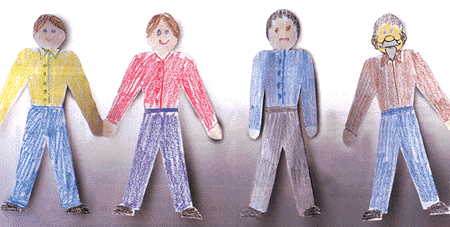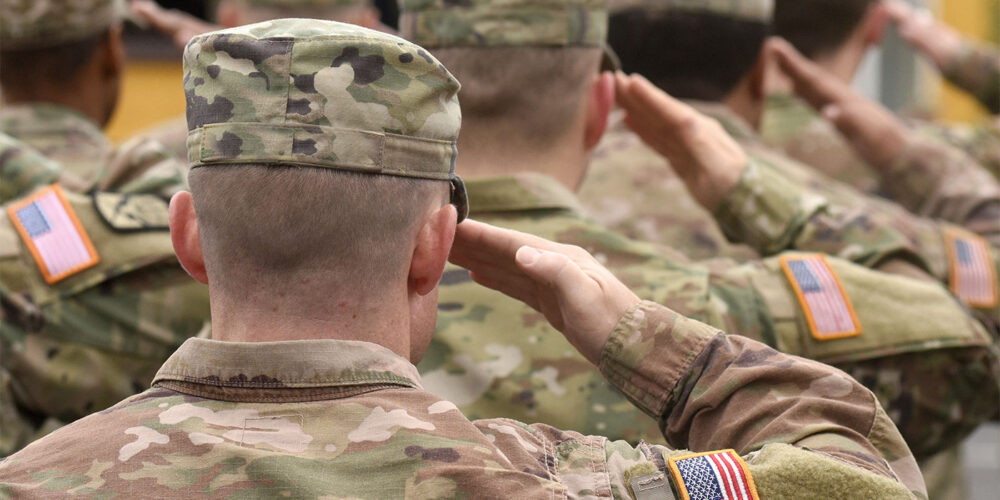“It seems like shops are more obsessed with competing than with working and sticking together, so how will we ever better the industry for ourselves?”
– Dennis Terry, technician, Hilltop Auto, Cabot, Ariz.
The fact that insurers work so hard to control the consumer explains one of the reasons why shops don’t “stick” together. Shops feel insurers control their market, so to stay solvent, shops feel they must stay one step ahead of other shops. This is done by focusing their attention in the direction of insurers. Any edge they can gain with an insurer means more work and supposedly more money for the shop.
The constant hammering of the antitrust issue is another of the most evident and most prominent reasons shops won’t band together. Simply attend an I-CAR class, and you’ll quickly understand the atmosphere in this industry and why collision professionals are so hesitant to group together. (They start out with a very stern – what I feel to be over-the-top – warning about violating antitrust laws. There’s even a short video at the beginning of each class.)
This concern over legal defense costs, when it involves such asset-rich corporations like insurers and the lack of any real legal knowledge of what these exemptions allow or don’t allow, fuels a real concern by repairers about talking or gathering in an effort to better their businesses and this industry. And the PR put out by insurers tries to discourage professionals from learning from each other. This, as well as the incredible focus the insurers are putting on controlling consumers, are two of the primary reasons shops won’t come together to support any one industry issue.

Insurers Know What They’re Doing
The harder the insurer works the consumer and – in effect – controls the repair, the harder shops try to appease the insurer. These shops completely forget about the consumer and play off other collision repairers in their area in an attempt to convince the insurer that they can and will repair the “insurer’s” vehicles for less money and faster than their competitors.
As this market intensity grows, so do the tactics used by these shops that continue to push shops further apart. One such tactic involves the hiring of technicians and management by shops’ competitors. Many of these negotiations begin at industry functions and training seminars. Although easily recognizable in the corporate world as headhunting, in the collision industry – with such a shortage of good technicians and management – this practice only causes collision shops to separate themselves further from their competitors, sometimes even resulting in advocating less for outside training and spurring more in-house training.
Now, more than ever, insurers are working overtime to control consumers by advertising, claims coaching of employees, quick response claims teams, well-developed word tracks, claim-call centers and many other cost-containment tactics. Insurers clearly understand that by controlling the consumer, they can effectively control the flow of business within a repair center.
And after reaching a certain level of control, the insurer then can apply the pressure some have described as a “slow suffocation” to the collision repairer. At this time, the repairer is faced with the decision to do one of the following:
- Move more work out the door to make more money.
- This can also equate to the need for more production space, which then increases the debt service of a business and increases all other business- and management-related costs until the shop owner finally realizes he’s in a vicious circle chasing his own tail.
- Cut corners on repairs to maintain a profit level.
- Turn down the work, learn to work for the consumer and retain sales by understanding what rights they have as a business owner.
This choice often results in a larger legal liability. And with the ever-increasing debates over loss in market value and proper repairs, this will only become more and more prevalent an issue for those repairers who feel the answer to more profits is fewer repairs.
Repairers Need to Be Educated
There’s a very good reason why insurers work so hard to gather information about the collision industry. Information equals understanding, and understanding equals control. The more control, the more money.
That works the same way for the collision industry, which is why repairers need to understand and educate themselves about insurance contracts, third-party rights, unfair and deceptive trade practices, late payment statutes, imitation parts disclosures, loss of market value issues, what the law requires of a professional repairer, the duties of an insurer and the many other laws and issues that affect repairers every day.
As collision professionals begin to realize that these issues are more than just new industry buzz words, I suspect that you’ll see more and more of them grouping together for training in the legal arena of this industry. The financial benefits of getting this training as a group will benefit all who get involved. And, as this knowledge grows, shops will then begin to focus back on the consumer. Eventually, repairers will realize that consumers who control their claim will be more satisfied with their repair, will work to be sure the repairer is fairly compensated and will return with their friends and relatives time and again.
So what needs to happen here?
First, shops must learn about their business rights. Every business has them, and they’re very clear for those who want to learn them. Shops also need to understand that antitrust guidelines for associations are different than they are for “groups of shops” getting together. And what can and can’t be discussed is usually greatly blown out of proportion – mostly due to the fact that antitrust violations require a conspiracy and most shops simply want to be educated, not to conspire against anyone.
Second, repairers need to learn about the rights of their customers. More specifically, what rights do insureds have and what rights do claimants have. Do you know the difference between a third-party and a first-party claim? If you don’t know that both are uniquely different, you need to get some legal advice. (For an aricle on first- and third-party claims, log on to www.boydshopbusiness.com and search past issues of BSB using key words “Patrick McGuire.”)
I’ve decided that one of the best investments I can make as a shop owner is to deal directly with an attorney with regard to how the law affects me and my shop. I pay a local attorney for advice on a regular basis and have developed an excellent business and personal relationship with him so he knows and understands the issues I’m faced with – and he knows how to best address them.
There’s Power in Numbers
Although it would appear, at times, that there are far more collision professionals today willing to band together for the betterment of the industry, the amount who are actually willing to get involved and work for serious change is few. Much of this can be attributed to not knowing and not understanding exactly what they can do. In fact, many shop owners are unable to help themselves by simply understanding their rights as a business owner and the rights of their customers.
Along with getting this legal training, repairers need to get involved with associations – not in an attempt to get protection but to undertake issues and tasks that will help them better understand this industry and what they can do to improve their position when it involves a third-party insurer.
One example of issues that could be combated by a group of educated shop owners is paint caps and paint and material reimbursement by the paint hour. If these issues were challenged by a group with the proper legal advice, we could see an incredible increase in the reimbursement of paint and materials paid to the consumer on every claim.
Another example of power in numbers is the imitation sheet metal parts cases that have come to pass – along with those on the horizon. Had it not been for the willingness of shop owners to bring the evidence and experiences together on these parts, we wouldn’t be where we are today on this issue.
My favorite example of the value of shops “banding” together is the shops that have joined Chicago attorney Patrick McGuire’s legal groups in Illinois. Not only are these classes educating shop owners regarding their rights, but they also teach shop owners about first- and third-party claims, paint caps, imitation parts, loss of market value, professional conduct and expectations of a repairer, unfair and deceptive trade practices and many other industry issues.
These classes – and many like them – are popping up all over the country. Why? Because shops that are willing to band together are seeking a competent attorney who then develops classes for the groups. Each class member pays his or her own way but, as a group, they’re able to keep the costs of this legal advice reasonable.
These groups can begin with a few shops, but they’ll grow as area shops realize that they must understand what their obligations are to the consumer before a legal action by an insurer or a disgruntled consumer puts them out of business. (Witness of this can be found in the newer requirements by insurers for DRP partner shops to increase their liability insurance amounts.)
The simple solution to the future of your business is to get involved with other collision shop owners in your area. Together, you can begin to understand your rights, the rights of the consumer and the obligations of the insurer.
Writer Mark Cobb is president of Cobb’s Inc D/B/A Cobb’s Collision Center in Windham, Maine, and has 19 years of industry experience. Cobb is a supporter of the independent collision repair profession and is president of the Coalition for Collision Repair Excellence (CCRE). Cobb is married and the father of three children.
|
Collision Industry Associations: Be a Joiner, Not a Loner The collision repair industry has a wide range of national – and regional – associations, each with differing beliefs, views and goals. Who knows, maybe there’s an association out there for you, but you just don’t know about it yet. Here’s a list of many (but not all) of the collision repair associations out there for you to choose from:
|













